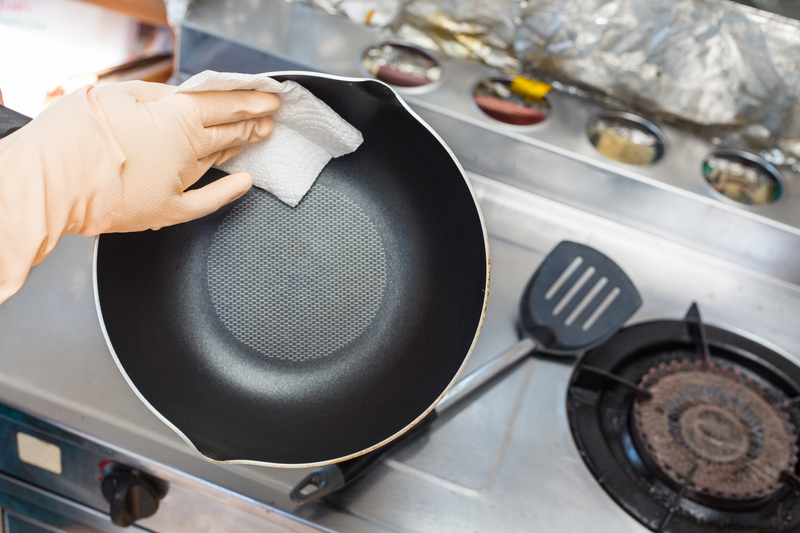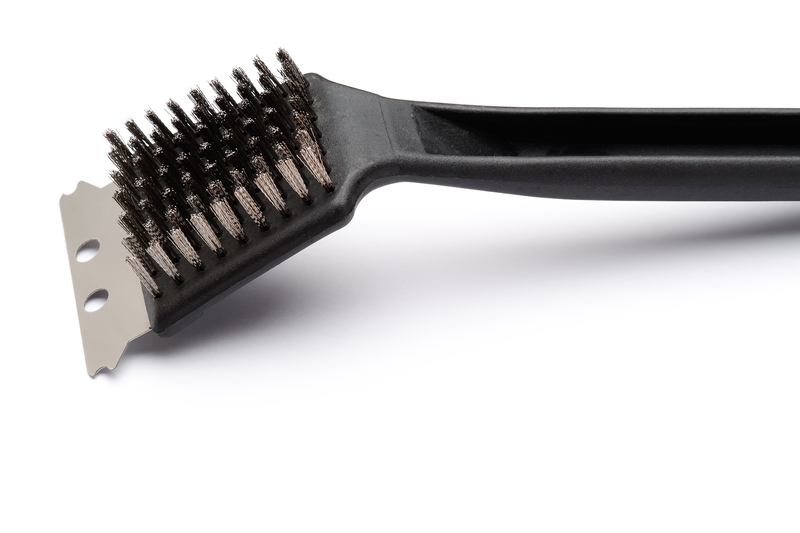Responsible Disposal and Recycling of Cooking Pots
Posted on 07/09/2025
Responsible Disposal and Recycling of Cooking Pots: The Ultimate Guide
Cooking pots are essential in every kitchen, used daily for a variety of meals. Over time, they may become worn out, damaged, or simply replaced with newer models. While most people are aware of how to responsibly dispose of household waste like glass or plastics, the proper disposal and recycling of cooking pots isn't as widely understood. In this comprehensive guide, you'll discover eco-friendly, efficient, and responsible ways to dispose of and recycle your old, unusable, or unwanted cooking pots.

Why Is Responsible Disposal of Cooking Pots Important?
Cooking pots are mainly constructed from materials such as stainless steel, aluminum, copper, or non-stick coatings. Improper disposal can result in these materials ending up in landfills, causing unnecessary environmental harm. Responsible recycling of cookware conserves resources, reduces energy consumption, and lessens the negative impact on our environment.
- *Conserves natural resources*: Metals can be recycled endlessly without loss of quality, saving raw materials.
- *Reduces greenhouse gas emissions*: Recycling metals takes less energy compared to producing new materials from ore.
- *Minimizes landfill waste*: Pots left in landfills may take centuries to decompose.
- *Promotes circular economy*: Recycling keeps valuable materials in use, supporting sustainability.
Understanding Cooking Pot Materials and Their Impact
To dispose of and recycle your old pots responsibly, it's helpful to understand what they are made of. Here are the most common materials:
Stainless Steel
A popular material for pots and pans, stainless steel cookware is highly recyclable. Scrap metal yards readily accept stainless steel, and it can be transformed into new products without degradation.
Aluminum
Aluminum pots are lightweight and conductive, but pure aluminum can be efficiently recycled as long as it's clean and free from plastic handles or coatings.
Copper
Copper pots, prized for their excellent heat conduction, are valuable to recyclers due to copper's high economic value.
Non-Stick and Ceramic-Coated
These types of cookware present additional challenges for eco-friendly disposal because the coating cannot usually be recycled. They may require special attention or removal of the non-metallic parts before recycling.
How to Prepare Cooking Pots for Recycling
Before dropping your cookware off at a recycling center or scrap yard, it's crucial to take a few preparation steps:
Remove Non-Metal Parts:- Handles and knobs: Most are made of plastic, wood, or silicone. Remove these if possible.
- Lids: Separate glass lids, as these usually go in glass recycling streams.
- Remove all food residues and grease. Clean pots are easier for recyclers to process.
- Stainless steel and aluminum pots should be sorted separately, as mixing materials can complicate recycling.
Eco-Friendly Options for Disposing Cooking Pots
There are several responsible ways to dispose of and recycle cooking pots. The best method depends on your community recycling options and the condition of the cookware.
1. Donate Usable Cookware
If your pots are in good condition, consider donating them to:
- Local charities or shelters
- Thrift stores or second-hand shops
- Community centers, churches, or schools
Many people in need can benefit from gently used cookware, making donation an environmentally and socially responsible option.
2. Repurpose or Upcycle Old Pots
Old cooking pots can take on new life as:
- Planters for flowers or herbs
- Storage containers
- DIY art projects
Get creative and turn your old pots into practical or decorative items around the home! Upcycling is a great eco-friendly cookware disposal method.
3. Take to a Scrap Metal Recycler
Most metal recycling centers will accept stainless steel, aluminum, and copper pots. Be sure they are clean and free from non-metal attachments. Local scrap yards often pay for valuable metals such as copper.
4. Contact Your Local Recycling Program
Many municipal recycling programs accept metal cookware. Check the following first:
- Accepted materials list: Not all facilities take large metal items.
- Drop-off requirements: Some centers only accept materials at specific drop-off locations or on certain days.
- Preparation instructions: Verify if handling steps (removal of handles, cleaning) are required.
If in doubt, call your local recycling office or consult their website for current guidelines on recycling old cooking pots.
5. Specialized Recycling Facilities
Some companies and organizations specialize in recycling or upcycling cookware (such as certain non-stick or ceramic-coated pans). These programs generally require mail-in procedures or scheduled drop-offs. Examples include:
- Mail-in recycling programs for non-stick and specialty cookware
- Community collection events for hard-to-recycle items
- Retailer take-back programs (check with cookware retailers for recycling initiatives)
6. Check Household Hazardous Waste Days
If your cookware has Teflon or other coatings that could be considered hazardous, see if your community holds a household hazardous waste collection day. These events accept items that don't belong in regular trash or recycling.
What NOT To Do When Disposing of Cooking Pots
- Don't throw them in regular trash if avoidable. This leads to wasted materials and fuller landfills.
- Don't mix cookware with standard curbside recycling unless your recycling program specifically allows it.
- Avoid recycling pots with food residue, excessive rust, or attached plastic parts.
- Don't burn pots made from synthetic coatings or plastic handles, as this may release harmful fumes.
Frequently Asked Questions (FAQ) About Responsible Pot Disposal
Can I Recycle Non-Stick or Teflon-Coated Pans?
Teflon-coated or non-stick pans are tricky. While the metal core (often aluminum) is recyclable, the coating is not. Some scrap yards may accept them if you remove plastic parts and the coating is minimal. Specialized mail-in recyclers or manufacturer take-back programs may be better options.
Are Cast Iron Pots Recyclable?
Absolutely! Cast iron cookware is 100% recyclable. Scrap metal yards often accept cast iron, or you can donate it if it's still usable, as cast iron lasts for generations.
Do I Need to Remove Handles or Lids?
Yes--handles, lids, and knobs made from non-metallic materials should be removed to make recycling easier and more efficient.
What Happens to Recycled Pots?
After processing, recycled cooking pots are melted down and the metal is re-used in creating new products--everything from car parts to new kitchen utensils!
Sustainable Brands and Cookware Exchanges
Some forward-thinking cookware manufacturers and retailers are now offering cookware recycling or exchange programs. For example:
- Trade-in incentives for old pots and pans in exchange for discounts on new products
- Retailers collecting old cookware for recycling or donation
- Manufacturers designing pots for greater durability and recyclability
These initiatives support a circular economy and promote responsible disposal practices.
Environmental Impact and the Future of Cookware Disposal
By choosing eco-friendly ways to dispose of old cooking pots, you make a real difference toward reducing pollution and conserving resources:
- Reducing landfill growth and the leaching of harmful chemicals into soil and water
- Decreasing demand for mined metals, lessening energy usage and habitat destruction
- Encouraging more responsible manufacturing and consumer behaviors
With rising awareness about sustainability, the future may see even more innovative solutions for recycling, repurposing, and responsibly disposing of cookware.

Takeaway Tips for Responsible Disposal of Cooking Pots
- Research local recycling policies: Not all municipalities accept cookware in standard curbside recycling. Always verify first.
- Separate and clean: Remove plastic handles and food residue before recycling.
- Donate if usable: Giving your old cook pots a second life is the most sustainable option.
- Try upcycling: Get creative instead of discarding pots that are no longer suited for cooking but are structurally sound.
- Support sustainable brands: Consider buying from brands that offer take-back or recycling programs.
Conclusion: Make Every Pot Count
Proper disposal and recycling of cooking pots isn't just about decluttering--it's about safeguarding our environment and preserving valuable resources. By choosing the right disposal route, you can ensure that your old cookware continues to serve a purpose, either in another home, in a new product, or as an inspiring upcycled project in your own garden. Next time you upgrade your kitchen supplies, don't send your trusty old pots to the landfill--choose a responsible, environmentally-friendly option!
For more guidance on responsible cookware recycling, reach out to your local waste management authority and explore sustainable cookware brands that make it easier to recycle and reduce kitchen waste for a greener planet.
```





